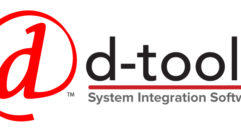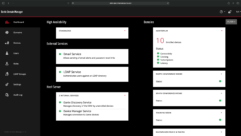SERVICE AGREEMENTS
Oct 1, 2002 12:00 PM,
ALAN KRUGLAK
Some everyday things we take for granted are really much more complicated than they appear. Take the concept of communication. Communication is the process of imparting or exchanging thoughts by speech, writing, or signs between two or more parties. Evolutionists often state that humans are superior to their cousins, the chimpanzees and other related primates, because of their advanced ability to communicate. Given the fact that primates do not have a single lawyer or corrupt CEO among them, I sometimes question who is really more advanced — us or them.
Communication is complicated, because the ideas expressed during the process are always open to interpretation by different groups. Let me use my wife as a perfect example. One day she came to me and asked, “Would you please go shopping with me?” Because I “understood” what shopping was, I said, “No problem, honey.” In my mind, the definition of shopping is clear — go to the store (singular), quickly identify what you want, buy it (usually without worrying about the price), and leave as soon as you can. The entire shopping time should take only about 45 minutes, including travel time.
That’s when I learned that effective communication is not that simple. Although we both spell and pronounce shopping in the same manner, my wife had a different definition of the word. In her mind, the definition of shopping is also clear — go to the stores (plural), examine as many objects as possible, try on about half of the store’s clothing, agonize over the retail versus the sale price, purchase two or more products that you never intended to buy, plan on coming back the next day to return what you bought, leave the store slowly, have a light lunch, and return home. The time expended from beginning to end was three-and-a-half hours.
COMMUNICATING ABOUT SERVICE AGREEMENTS
As you can see from the example, when it came to shopping, both of us failed to properly communicate. The same failure often occurs between the systems integrator (you) and your prospect when it comes to selling service agreements. For instance, one of the biggest mistakes systems integrators make occurs when they present their proposal for the installation of a new system to the prospect. During the presentation, the prospect will often ask this universal question of all potential vendors: “Do you provide service after the system has been installed?”
Most integrators will respond in a strong, affirmative voice: “Absolutely!” The integrator’s sales reps will usually leave the presentation on a high note, feeling that they have fully communicated with the prospect their ability to meet their systems and service needs.
Now what is wrong with the response of “absolutely”? As the warden in Cool Hand Luke says, “Son, what we have here is a failure to communicate.” By responding to the question in the affirmative, you have failed to fully communicate the difference between your service and the service provided by the competition. What does service really mean? No matter how you look at it, there is no standard universal definition of service. From an integrator’s perspective, service could be something as simple as having the client pack up any defective product and ship it to the manufacturer for repair. The client’s downtime could be anywhere from one week to three months. Service could mean, “I will respond when I have technical resources and products available.” Again, that could mean the same day, the same week, or next month — whatever available means.
The only issue that matters when it comes to service is what the client’s expectations are when a service problem arises. From a client’s perspective, whereas downtime is painful, extended downtime is totally unacceptable. However, by the time the client has purchased the system, the definition of postsales service is moot. The client is usually stuck with the systems integrator who originally sold the system. Searching for alternative sources of service is not an easy answer, because other integrators may not be familiar with the system, or they could be worse than the original vendor.
When it comes to answering a prospect’s question about the availability of postsales service, it is important to go beyond the “absolutely” response to “yes, but because not all service is the same, let me explain our service plan.” It is not the prospect’s fault that he or she doesn’t understand that service comes in a host of flavors — it’s your fault. As an integrator, it is your responsibility to educate the prospect why your services can more effectively meet the client’s needs. When it comes to selling your company, educate, educate, educate.
Once you have the prospect’s attention, you can simply begin your brief but highlighted discussion about the key differentiating factors associated with your service program. The key features of your service program should meet the prospect’s needs on availability and problem resolution, including key phrases such as “advance field replacements” (instant loaners) and “resolution guarantee” (guaranteeing you will fix the problem within 24 hours or less). By leveraging the differentiating features of your service plan, you will significantly increase the probability of winning the original installation as well as sell more service agreements. It is all about clear communication.
I learned about differentiating key service features the old-fashioned way — by trial and error. I made the same classic mistake that most integrators make, by assuming the prospect understood the difference between our service and the service of our competitors. I will never make that mistake again.
Alan Kruglak‘s “Management Perspectives” column features excerpts from his business books, which he based on his experience operating a systems integrator and achieving gross margins of 54 percent and operating profits of 20 percent. For more information, contact him at (301) 365-7522 or [email protected].









